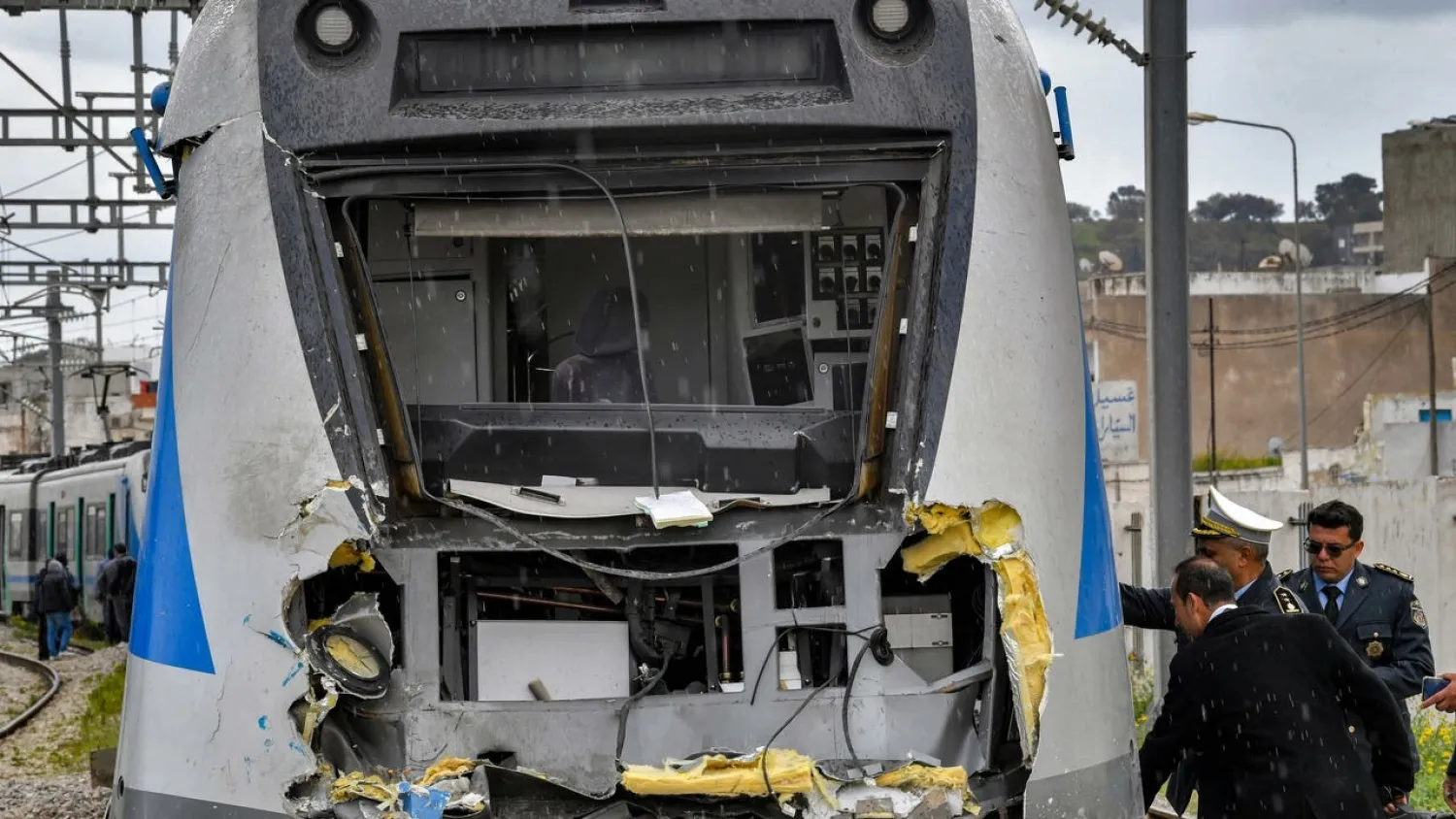A head-on collision between two passenger trains injured 95 people Monday in the south of the Tunisian capital, emergency services said.
"The injured were taken to hospitals and there were no deaths," civil defense spokesman Moez Triaa told AFP, adding that only one of the trains was carrying passengers.
Most of the injured suffered bruises or fractures, none of them life-threatening, he said.
Many passengers were in shock, he added, saying around 15 ambulances had been dispatched to treat the wounded or take them to hospital.
The collision happened at 9:30 am local time (0830 GMT) in the Jbel Jelloud area, on the approach to a terminus in central Tunis.
An AFP reporter at the site saw the front of one of the trains had been caved in.
The SNCFT national train company said 84 people had been wounded and that "77 were able to leave hospital while seven others are under observation".
Transport Minister Rabi Majidi visited the site of the accident but did not speak to journalists.
The cause of the accident was not immediately clear but the SNCFT said an inquiry had been opened.
Hours after the accident, the civil protection service said five people had been wounded when another train carrying 220 people was derailed on the way towards the Kef region west of Tunis.
Tunisia's ageing railway system has seen several deadly crashes in recent years.
Between 2017 and 2021, the country saw 173 train accidents which killed 229 people and injured 345, said Achraf Yehyaoui, spokesman for a governmental agency for preventing transport accidents.
At least five people were killed and more than 50 injured in late 2016 when a train slammed into a public bus near the site of Monday's crash.
An official said signals and safety gates had been out of service at the time of the crash.
The 2016 accident prompted the sacking of SNCFT chief Sabiha Derbal.
The previous year, the North African country experienced one of its worst railway disasters, with 18 people killed when a train hit a lorry and derailed at a level crossing south of the capital because of a signals failure.
The country of just under 12 million people also has a poor road safety record, with some 980 deaths and more than 6,500 injuries last year according to the interior ministry.









